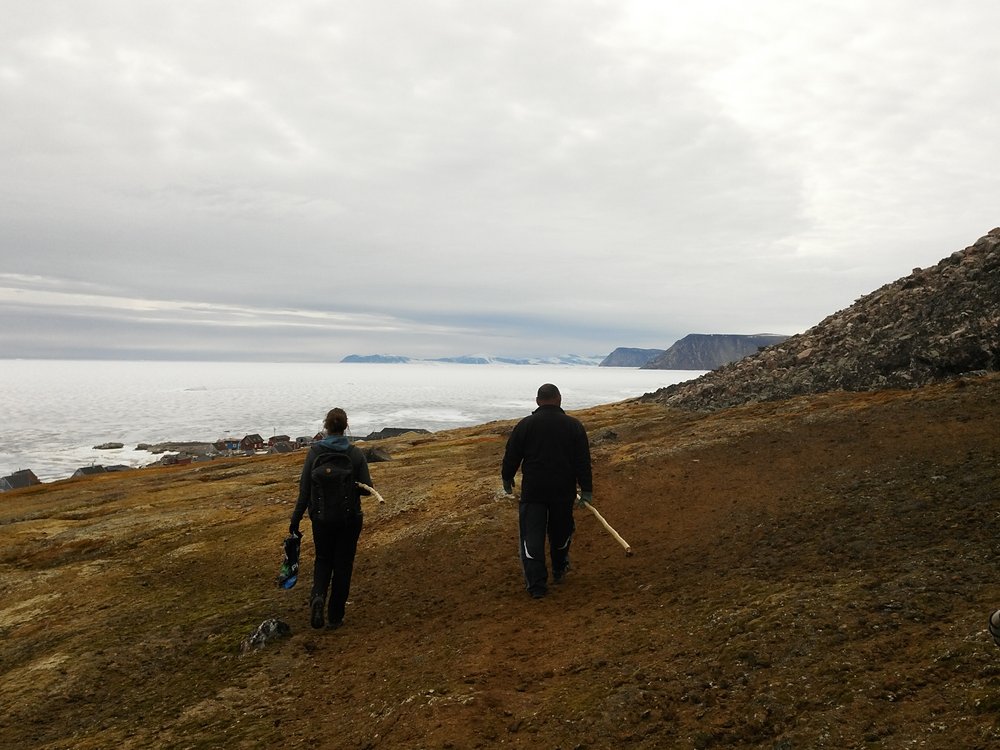Anthropocene: Voices from the South or: Indigenous voices of the Anthropocene
Astrid Oberborbeck Andersen is a postdoctoral researcher with the AURA project. She received her PhD in Anthropology in 2014 from University of Copenhagen. Her research centers on human-environment relations, focusing mainly on urban ecology and water politics in Peru, and hunting livelihoods, and environmental politics and management in Northwest Greenland. In her research, Andersen is interested in the ways that expertise, ways of knowing and politics tangle up in particular ways in different environments, and the role materiality and technology play in such processes. She has a strong interest in how cross-disciplinary collaborations (also beyond academia) can provide new insights and generate change in the status quo of knowing and doing environmental politics (in postcolonial contexts).

Returning to the small village of Savissivik from the talis slope with my colleague Janne Flora and Vittus Uumaq. Little auks breed in millions of pairs each summer in colonies along the coasts of Northwest Greenland. These birds transform the landscape, and they transform the rhythms of social life when they are present (Mosbech et al. 2018). Photo taken during fieldwork in 2015 (the NOW-Project: www.now.ku.dk. Photo: Astrid O. Andersen).

Expanding the city. Primero de Junio is an urban settlement on the outskirts of the city of Arequipa, on the feet of the Chachani volcano. Since the foundation of Primero de Junio in 1996, inhabitants have worked hard to make potable water flow uphill, to their households, through political pressure, collective labor and actions. Finally, in early 2018, water started flowing through the plastic pipes that were placed 9 years earlier.
With past experience as a practitioner of performing arts (contemporary dance), Andersen is engaged in working with different formats of making analysis and communicating research finding (installations, video, exhibitions).
Astrid’s postdoctoral work in the AURA project centers on the coordination and editing of a collective online publication, Anthropocene: Voices from the South or: Indigenous voices of the Anthropocene.
This video-podcast project will bring forward situated voices of the Anthropocene, that is voices of people inhabiting different and specific natural and built habitats, expressing enthusiasm and concern about past, present and future changes happening, focusing on one particular animal, plant, habitat or activity that is affected by human-induced conditions. The voices will be given form of lightly edited narratives or stories of the Anthropocene; enacting diverse perspectives and viewpoints, vernacular theories and interpretations, of what is happening to specific beings, species, activities and habitats in the world, due to anthropogenic impact.